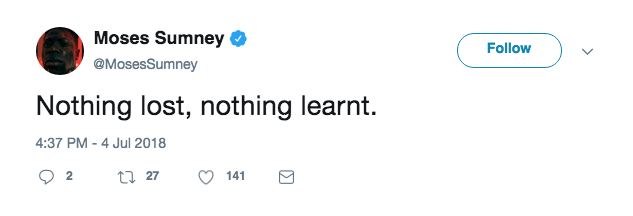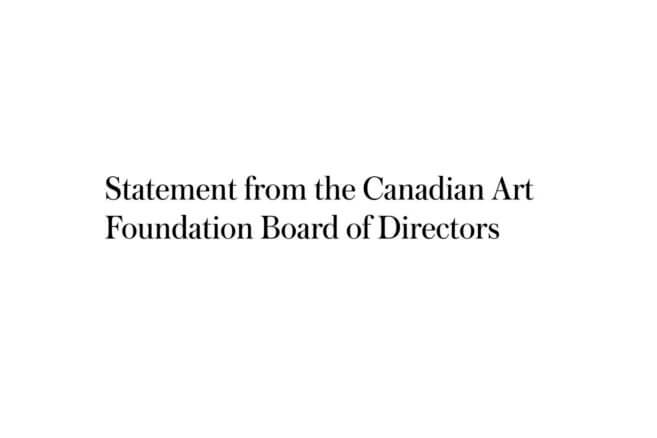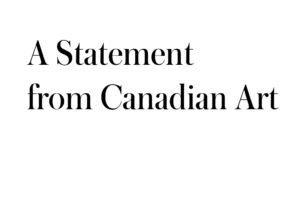After days of protest and controversy—as well as a major act, Moses Sumney, pulling out and performing instead at a small grassroots venue—the Montréal Jazz Festival announced yesterday that it would be cancelling all remaining performances of SLĀV.
In recent days, headlines about SLĀV and its creators’ decision to have white performers restage Black spiritual songs and slavery narratives had started to spread internationally, including in the New York Times and the Telegraph. HotNewHipHop reported that stars including Janelle Monae, Zoe Kravitz and Zoe Saldana were among the production’s critics on Instagram.
“Since the beginning of the SLĀV performances, the Festival team has been shaken and strongly affected by all comments received,” said the festival’s official cancellation statement of July 4. “We would like to apologize to those who were hurt. It was not our intention at all.” The cancellation announcement, made in conjunction with SLĀV creator Betty Bonifassi, stated “inclusion and reconciliation between communities are essential.” (SLĀV’s director, the internationally acclaimed Quebecer Robert LePage, was not mentioned in the statement.)
But while the cancellation of SLĀV is a triumph for many concerned about cultural appropriation and anti-Blackness in the arts, it is clear that much remains to be done.
“We don’t just want the show to be cancelled. We actually want structural changes,” says Sophia Sahrane, a member of the SLĀV Resistance Collective that organized key protests and actions against the play. “SLĀV ignited the flame, but the issue is bigger than just SLĀV.”
Guitarist, vocalist and songwriter Athena Holmes participated in protests against SLĀV and expressed concern regarding the fundamental rationale behind this show. “I think this is an example of underrepresented voices being left out in every way, including the decision making process,” they stated. “For a show like this, the funding bodies, the festival board, the venue and sponsors all have a say in how much much the artistic venture gets support. When there is a lack of diversity in these organizations, shows like SLĀV are able to happen.”
What needs to happen next is quite effectively outlined in an open letter that Sahrane and other members of the SLĀV Resistance Collective issued on Wednesday—a letter that quickly gained more than 1,500 signatures of support from academics, artists, and musicians in and beyond Quebec.
“In Quebec, there is not a lot of willingness to admit that racism exists.”
Among the demands in the letter are for the Jazz Festival to “acknowledge Roué-Doudou Boicel as the founder of the Montreal Jazz Festival in all publications.” While the City of Montreal has recognized Boicel as key to keeping jazz alive in the city during the 1970s, when the genre’s presentation was at a low ebb, and recognized him as creator of Rising Sun Festijazz, “an international jazz and blues festival that brought international stars to Montréal to perform on the stages of the Rising Sun and Place des Arts…paving the way for the Festival international de jazz de Montréal,” Boicel receives no acknowledgement on the Jazz Festival website itself.
“Even I didn’t know about Boicel until very recently,” Sahrane says. “His festival was very successful, and then it was co-opted. We just want an admission of his work.”
Asked about the particularities of anti-Black racism in Quebec, Sahrane explains that there is a particular cultural context which made SLĀV—a musical in which white artists explicitly appropriate Black narratives—possible. “In Quebec, there is not a lot of willingness to admit that racism exists,” Sahrane says. “A study came out last year showing that English-speaking Canadians were more willing to admit racism than French Canadians are. The fact that French were colonized by the British in Quebec contributes to this idea that the oppressed can’t perpetuate oppression—which, of course, is wrong.”
The open letter also calls for “Québec Premier, Philippe Couillard and Québec Minister of Culture and Communications, Marie Montpetit, to rectify the present racial inequalities in public funding for the arts in Quebec that has led to productions like SLĀV.”
Public funding agencies are also called out in the open letter. The letter calls for “the two public funders of SLĀV, the Conseil des arts et des lettres du Québec (CALQ) and the Canada Council for the Arts (CCA), to…institute a policy that requires consultation with BIPOC artists for evaluating the validity of a (potentially) funded project’s engagement with BIPOC communities.”
Though the Canada Council has in recent years made well-publicized statements against cultural appropriation, put forward a new Equity policy, and also put funding increases on hold for organizations like Soulpepper Theatre following sexual harassment coverups, it is yet unclear how the SLĀV’s problematic formulation may affect funding for its producers in future.
When asked for comment regarding SLĀV and the open letter demands, the Canada Council yesterday emailed the following statement signed by CEO Simon Brault: “The Canada Council for the Arts considers that the debate happening worldwide, in the arts community, and in our peer assessment committees about cultural appropriation to be essential to the evolution of arts practices and public engagement in Canadian society. The Council has policies and procedures in place including equity priorities that are communicated to peer assessment committee members at the beginning of their review process for making funding recommendations. I should clarify that SLĀV was not specifically funded by the Canada Council for the Arts as a project. That said, [theatre company] Ex Machina did receive core funding as an organization for all of its activities over three years. The Council continues to closely follow this evolving debate and is committed to support best practices to advance diversity, inclusion and equity.”
“There was nothing avant-garde about stealing from Black people. It’s been done since the beginning of time.”
For its part, when asked for comment, the CALQ emailed a statement in French from director Honorine Youmbissi. The statement noted that “The Council has always respected the autonomy of creators and does not intervene or comment on the artistic directions of an organization.” It also added that peer review and evaluation remains central to council’s process and noted its action plan for diversity was released two years ago. However, it also stated that “Our processes are constantly evolving… we intend to continue to act in consultation with the community to adjust if necessary. Therefore, we are closely following the issues raised by the mounting of the show SLAV. They inform the reflections of our Board of Directors, which will guide our future actions as a public funding agency.”
The involvement of arts funders in the conversation moving forward is crucial. Sahrane notes that the contexts and conventions of art is part of what made SLĀV possible in the first place. “The creators called SLĀV somehow avant-gardiste,” she says. “But there was nothing avant-garde about stealing from Black people. It’s been done since the beginning of time.”
“Now that the show has been cancelled, myself and members of the community who made this happen are feeling empowered by what we were able to accomplish,” Holmes says, “Personally, I don’t feel that Jazz Fest Montréal has been fully transparent or that they truly see fault in their decision to present the show in the first place. But I am glad they cancelled it. It was the right thing to do.”

 Tweet posted by the artist Moses Sumney in response to the cancellation of SLĀV. Earlier this week, Sumney pulled out of the Montréal Jazz Festival in protest.
Tweet posted by the artist Moses Sumney in response to the cancellation of SLĀV. Earlier this week, Sumney pulled out of the Montréal Jazz Festival in protest.




